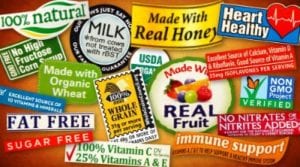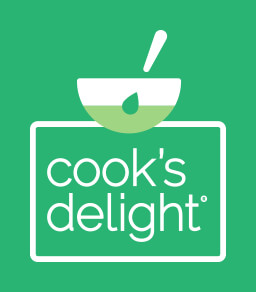Keeping Up with the “Clean Label” Movement
Technology-Driven Transparency and Millennials Driving the Clean Label Movement
Andrew Winston
(reprinted with permission from Harvard Business Review)

The real story is the relentless shift to transparency and what many call the “clean label” movement. In the food world, a clean label focuses on having fewer ingredients that are very clear about their origins, and recognizable (e.g., “cream” versus “microparticulated whey protein concentrate,” which the fast-growing chain Panera has placed on its long “No No List”). But “clean” is a catchall for a much broader and growing list of demands about the human and planetary impacts of all products and services (and the companies behind them).
Two major forces are driving this clean label world: (1) technology-driven transparency about products and their supply chains, and (2) Millennials, who are regularly demanding good behavior from the companies they buy from and work for. This movement, while hitting a fever pitch around products we put in or on our bodies, is not just affecting the food and personal care worlds…
The financial community, too, has noticed the new demands from Millennials — and the money that can be made by appealing to their larger aspirations. At the recent Sustainable Brands Metrics conference, Audrey Choi from Morgan Stanley presented some fascinating research on investor attitudes, with particular focus on Millennials. Choi explained the simple reason banks care about this generation: 10,000 people are turning 30 every day, and that’s roughly the age they start amassing assets (and having kids to spend money on).
This latest generation of workers and parents are, according to Morgan Stanley’s research, three times as likely to “seek employment with a company because of its stance on social and/or environmental issues.” And they’re twice as likely to “check product packaging to ensure sustainability” (in the search, I presume, for a clean label), purchase from a brand because of its sustainability credentials, or put their money in investment funds that target sustainability outcomes. Blackrock, the world’s largest money manager with $4-trillion-in-assets, launched a new “impact investing” fund this month specifically to please these demanding Millennials. The fund will “seek stocks that advance health, the environment, and treatment of workers.”
This is clean-label investing.
But Millennial consumers aren’t the only ones driving the transparency train. All generations have access to more technology and businesses are raising the bar on what they expect from their supply chains. How ready are you to answer these kinds of tough questions from your employees and customers?
- What is every ingredient in your product, why is it there, and what does it do, exactly?
- How much of your energy comes from clean, renewable sources?
- Who are your suppliers and what are their workers’ lives like? And how about your suppliers’ suppliers?
- How much do all your executives make and what multiple of the average salary is that?
- How much do you know about the dangers of your product and when did you know it (see recent news on Exxon and climate change)?
- What goals do you have and how do they tie to global challenges (like reducing carbon emissions or dealing with inequity in your communities and value chain)?
- Which organizations, political causes, or candidates are you donating to, how much is it, and why?
- Why does your company exist? What’s its purpose? What’s yours?
Answering these questions, and dozens more like it, will not always be easy. But companies are developing the systems – data/IT, organizational, financial – they need. The bigger shift, to answer these honestly or admit what you don’t know, may be a cultural one. We Gen X-ers, or Boomers, may not have the level of comfort with transparency that Millennials expect. But even if these types of questions do make you uncomfortable, tough luck. There’s not much choice anymore.
Neglecting the clean-label movement will cost you customers and workers; avoiding it as a purposeful strategy could destroy the company or a few careers. Just think about Volkswagen, the poster child for creating the anti–clean label. By flat-out lying on its labels, VW damaged its brand, possibly irrevocably. So get proactive about really understanding your products and supply chains deeply, and get ready to share what you learn with the world.
________________________________________
Andrew Winston is the author, most recently, of The Big Pivot. He is also the co-author of the best-seller Green to Gold and the author of Green Recovery. He advises some of the world’s leading companies on how they can navigate and profit from environmental and social challenges. Follow him on Twitter @AndrewWinston.
Find out more about Cook’s Delight® variety of 31 clean label soup bases
